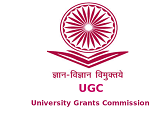
Indexed in UGC CARE LIST: Group I
Archival Policy
- Purpose and Scope
The purpose of this archival policy is to ensure the long-term preservation and accessibility of all content published in the Journal of Clinical Prosthodontics and Implantology. This policy applies to all articles, data, figures, supplementary materials, and any other published content.
- Accessibility and Preservation
- Digital Archives: All published content will be stored in a reliable digital repository with backup systems in place to ensure that materials remain accessible for the long term.
- Long-Term Access: The journal will partner with trusted third-party archiving services [Open Journal System], to guarantee continued access to its content by the Editorial office and the author even in the event of unforeseen disruptions to journal operations.
- Open Access: Articles published in the journal will be freely accessible to all users, and as such, the journal will follow open-access archiving principles, ensuring that articles are archived in compliance with open-access mandates.
- Archival Backup
- Primary Backup: The journal's content will be backed up in a secure and geographically distributed manner, ensuring redundancy in the event of data loss at one site.
- Frequency of Backup: Backups will be performed on a monthly basis to ensure that recent issues are consistently archived.
- File Formats: All articles, including text and multimedia content (tables, figures, etc.), will be archived in standard, open formats (e.g., PDF/A for documents, TIFF/PNG for images) to ensure future accessibility, regardless of changes in technology.
- Compliance with Legal and Ethical Standards
- Copyright: All articles published in the journal will comply with relevant copyright laws and licensing agreements. Authors will retain copyright of their articles unless otherwise agreed upon during submission, and appropriate attribution will be given.
- Data Preservation: In line with ethical research practices, any supplementary data associated with articles (e.g., raw data sets, clinical trial results) will also be archived. Where applicable, authors will be encouraged to deposit data into open-access repositories or institutional repositories.
- Privacy and Confidentiality: Any data that involve human participants or sensitive information will be managed in compliance with ethical guidelines, and the journal will ensure that such data is archived according to privacy laws [Information Technology Rules -2011*] with appropriate anonymization.
- Content Retention
- Full Journal Archives: The complete archive of all published issues, including back issues, will be retained permanently.
- Retraction Policy: Articles that are retracted will remain in the archives with an appropriate notice indicating the retraction. A record of the reason for retraction will be included to ensure transparency.
- Corrections: Published articles that require corrections (e.g., typographical errors, factual corrections) will have those amendments documented and accessible in the archive.
- Metadata and Citation
- Metadata: Full metadata for all published articles, including author names, titles, publication dates, DOI numbers, and keywords, will be maintained and updated regularly. This will facilitate citation, indexing, and discoverability of journal content in databases such as PubMed, Google Scholar, and Scopus.
- Permanent Identifiers: All published articles will be assigned permanent identifiers such as DOI (Digital Object Identifier) to ensure stable, long-term referencing and citation.
- Changes to the Archival Policy
This policy will be reviewed on an annual basis to reflect advances in technology, changes in legal and ethical standards, and the evolving needs of the journal and its readership. Any changes will be communicated to authors, readers, and collaborators.
- Conclusion
The Journal of Clinical Prosthodontics and Implantology is committed to preserving the accessibility and integrity of all its published content. Through our archival policy, we aim to ensure that research published in the journal remains accessible for future generations, facilitating continued scholarly work and progress in the field.
*Information Technology Rules[2011]
Information Technology (Reasonable Security Practices and Procedures and Sensitive Personal Data or Information) Rules, 2011 – India
- Overview: These rules are part of the Information Technology Act, 2000, and govern the handling of sensitive personal data or information (SPDI) in India.
- Implications for Journals:
- Sensitive Personal Data: Journals dealing with sensitive data (e.g., health information, financial data) must implement reasonable security practices and procedures to protect this data.
- Data Retention: The rules require that sensitive data should not be retained longer than necessary and must be securely disposed of when no longer needed.
- Data Protection: Journals must take precautions to prevent unauthorized access, disclosure, or destruction of sensitive personal data, ensuring privacy rights are respected.
